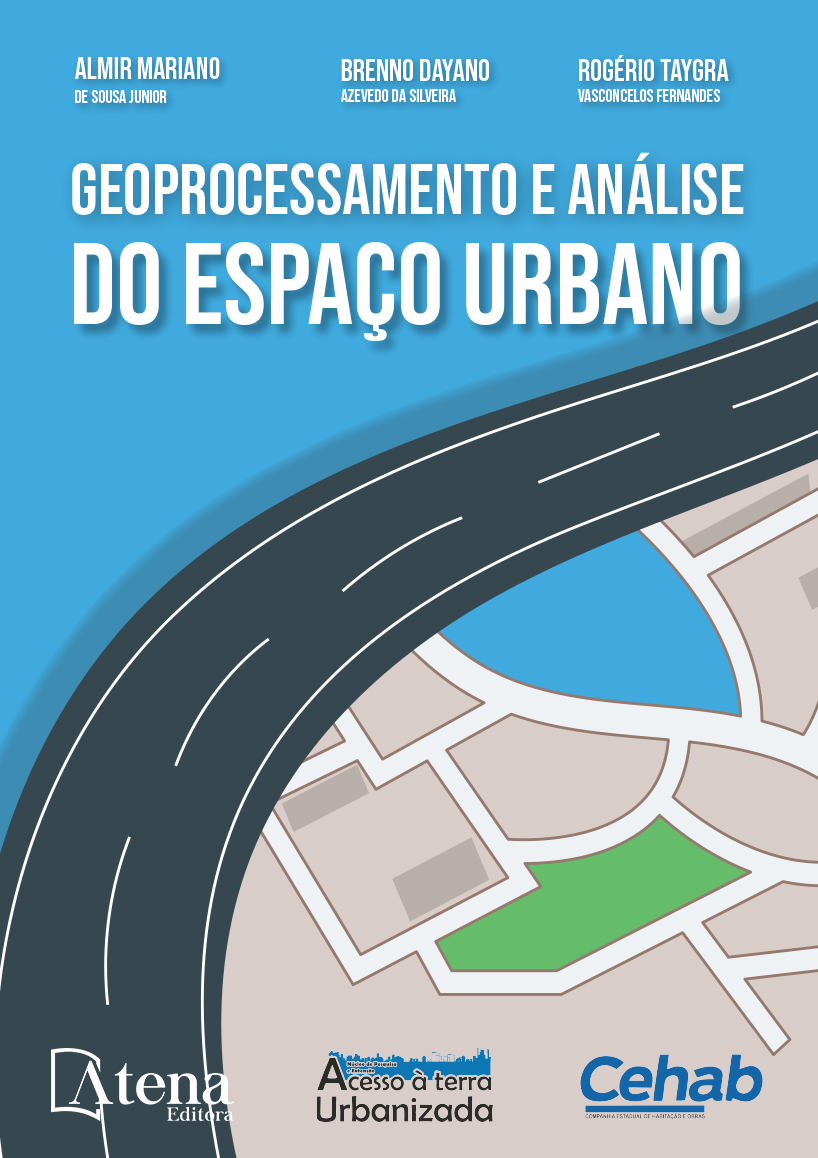
A PRODUÇÃO DO ESPAÇO URBANO: AGENTES E DESDOBRAMENTOS DA CONFIGURAÇÃO ESPACIAL NOS DIAS ATUAIS
Entender a história das cidades enquanto local de produção, mercantilização, relações sociais, ocupação, apropriação e direito as políticas públicas, entre outros, é enfoque de pesquisas de distintos segmentos da história, geografia, economia, urbanismo, sociologia, etc. Embora ampla, a definição dos elementos que conformam o espaço urbano se refere a uma justaposição entre os diferentes usos da terra, cujas peculiaridades podem ser compreendidas a partir da infinidade de dados imateriais que estas interações são capazes de gerar, passíveis de serem compreendidas através dos Sistemas de Informações Geográficas (SIG). Assim, é válido destacar que esta configuração é reflexo não somente da sociedade em que se vive, mas também das relações sociais estabelecidas no passado e que geram como consequência a materialização da malha urbana atual compreensível através da imaterialidade. Desse modo, o presente estudo tem por objetivo realizar um apanhado bibliográfico acerca das distintas variáveis que atuam e compõem o espaço urbano, relacionando-as com as práticas capitalistas, os grupos sociais, o Estado e o planejamento urbano como base para o diagnóstico via ferramentas de geoprocessamento. A metodologia para efetivação do mesmo consiste em uma revisão de literatura acerca de obras de autores clássicos da produção do espaço urbano. Sendo assim, os resultados obtidos destacam a atividade do geoprocessamento como um dos meios de se compreender a progressão dos agentes e meio urbano, além de discutir as variáveis que podem ser analisadas a partir de tal temática.
A PRODUÇÃO DO ESPAÇO URBANO: AGENTES E DESDOBRAMENTOS DA CONFIGURAÇÃO ESPACIAL NOS DIAS ATUAIS
-
DOI: 10.22533/at.ed.1312029041
-
Palavras-chave: Cidade; Produto Social; Espaço Urbano; Diagnóstico
-
Keywords: City; Social Product; Urban Space; Diagnosis
-
Abstract:
Understanding the history of cities as a place of production, commercialization, social relationships, occupation, appropriation and right to public policies, and even more, is the focus of research from different segments of history, geography, economics, urbanism, sociology, etc. Although expansive, the definition of the elements that make up the urban space refers to a juxtaposition between the different uses of the land, whose peculiarities can be understood from the infinity of immaterial data that these interactions are capable of generate, which can be understood through the Geographic Information Systems (GIS). Thus, it is worth to highlight that this configuration is a reflection not only of the society in which we live, but also of the social relations established in the past and that generate, as a consequence, the materialization of the current urban network understandable through immateriality. Thereby, the present study aims perform a bibliographic survey about the different variables that act and build the urban space, relating them to capitalist practices, social groups, the State and urban planning as a basis for diagnosis through tools of geoprocessing. The methodology for carrying it out consists of a literature review about works by classic authors of the production of urban space. Concluding, the results obtained spotted out the activity of geoprocessing as one of the tatics to understand the progress of agents and the urban tissue, in addition to discussing the variables that can be analyzed based on this theme.
-
Número de páginas: 23
- CÍCERO DE FRANÇA NETO
- FRANCISCO EDIJAILSON DA SILVA MATIAS
- BRENNO DAYANO AZEVEDO DA SILVEIRA
- ALMIR MARIANO DE SOUSA JUNIOR
- ROGÉRIO TAYGRA VASCONCELOS FERNANDES


